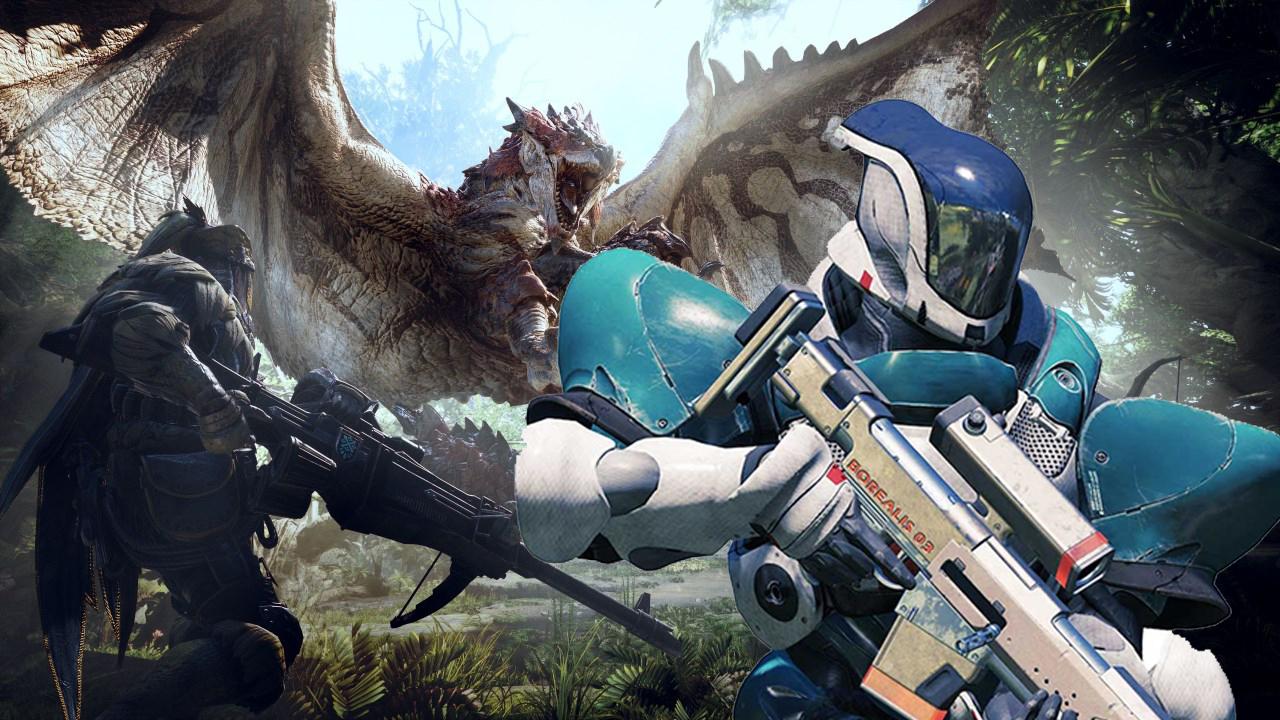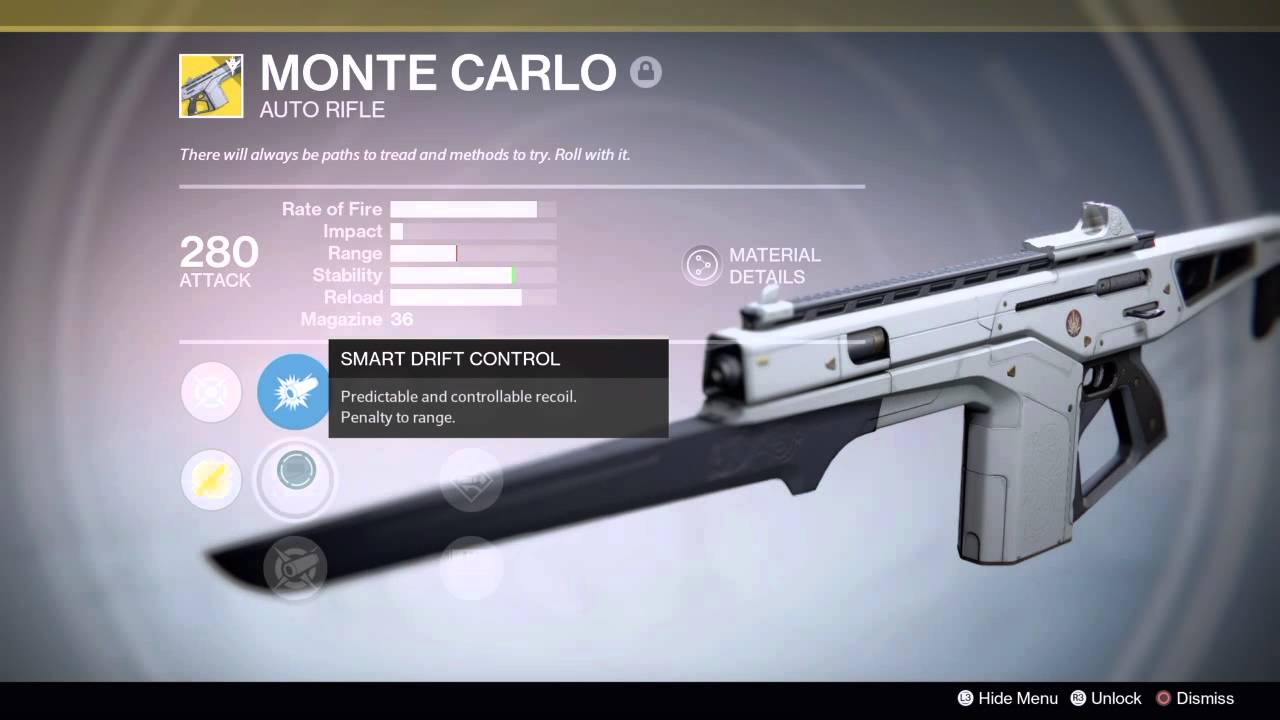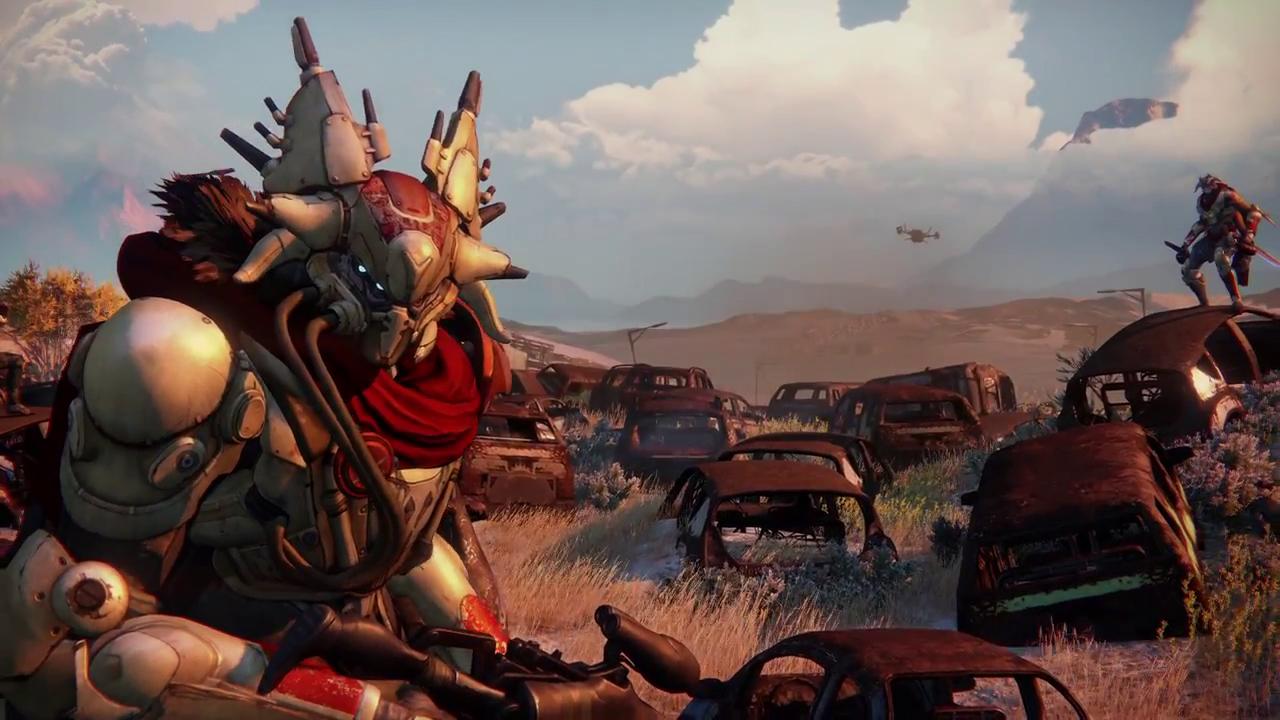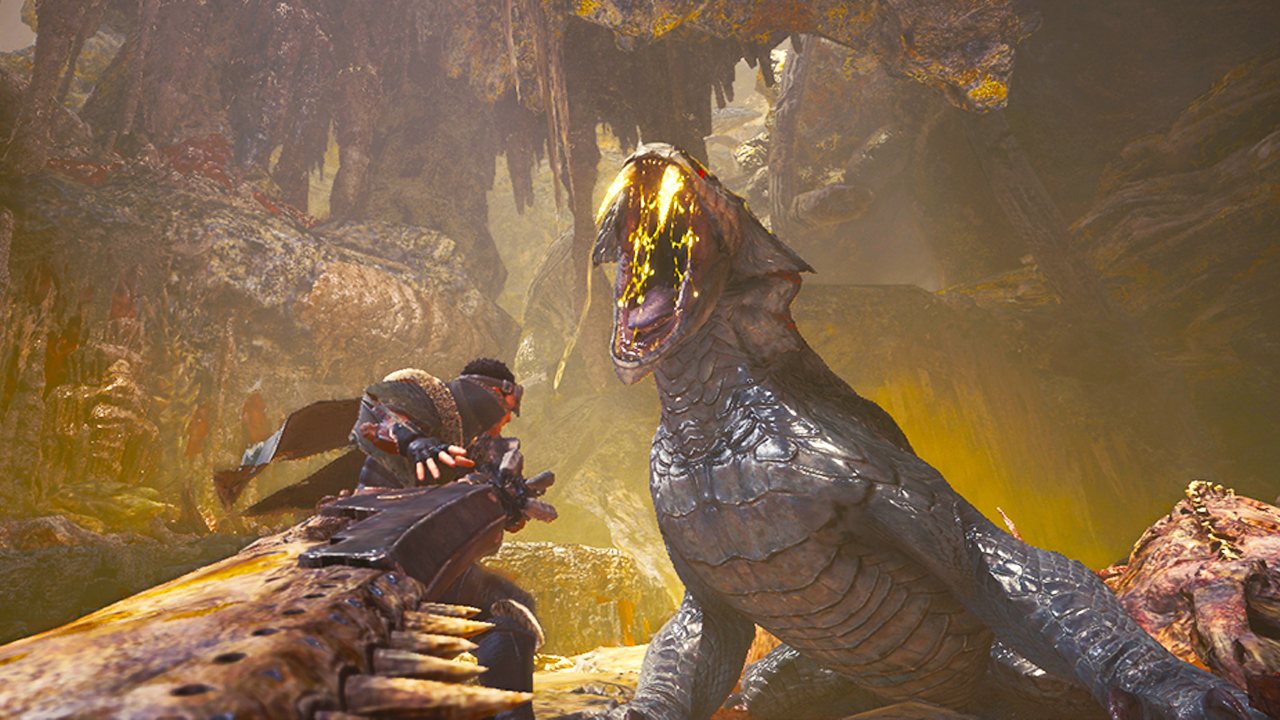Why do so many Destiny players seem to love Monster Hunter World all of a sudden?

There’s been a notable amount of Monster Hunter talk on the Destiny Reddit over recent months. Sometimes, it’s come as part of discussions between disgruntled Guardians regarding which games to play while waiting for new content and the implementation of Bungie’s mammoth list of 2018 improvements. Sometimes it’s come during lighter chats about general gaming outside of Destiny. Sometimes, Capcom’s brilliant, dino-slaying, co-op RPG has even formed the basis of fan-crafted design dreams for future Destiny 2 expansions, and even Destiny 3.
If you’re uninitiated in either game, that might come as a surprise. From the outside, there may seem little cross-over between a Halo-inspired, loot collecting, sci-fi FPS and a dense, often opaque, Japanese third-person action-RPG. But Monster Hunter World seems to have really got the attention of the Vanguard right now. Outside of Reddit, I’ve heard from multiple, Destiny-playing friends in the industry eager to trade the gun-grind for the blade-sharpening grindstone. On a personal note, one of my two current Monster Hunter World squads – the game’s equivalent of clans – is made up entirely of members of my long-term, close-knit Destiny friends list, and is filling with more by the day. The evidence for this shared love of Destiny and dragon-slaying is anecdotal, of course, but I’m hearing the same anecdote everywhere I go at the moment. So I feel like it’s time to talk about that.
Now, I find it particularly notable that – again, anecdotally – Monster Hunter specifically seems to be pulling in the hardest-core Destiny players. Because there’s good reason for that. Monster Hunter World’s appeal, I think, resonates particularly with the specific kind of die-hard Guardian who went deep on Destiny for the long-term, and has likely spent hundreds of hours over the course of three plus years enjoying a kind of real-world hobby cum fictional video game career. Because the thing that type of Destiny player wants – and I know this for I am one – is what Monster Hunter World is laser-focused on delivering. A real sense of ownership of their experience, and a tangible feeling of open-ended, long-term gameplay possibility.
As my years in Destiny have drawn on, that truth has only become clearer. The shooting, as brilliant as it feels, is really just the delivery mechanism propping up my real connection to the game. That connection, that vital, engaging, compelling relationship, has fundamentally been the result of my having significant control over the customised sculpting of my character’s abilities and play-style, and the game’s ability to deliver me a stimulating, long-term suite of ways to achieve and evolve that.
Bungie frequently uses the phrase “sandbox” to describe Destiny’s balance of weapon and character abilities but, in a bigger sense, that’s exactly what Destiny always was from a player’s perspective too. A toybox of tools with varying potential uses, that the casual player could have immediate fun with, but which the dedicated hobbyist could - with enough time investment and design pondering - use to build something thrilling and personal. And then they could share that with their friends, forming a Fireteam of combined, self-authored ability. They could tackle the game-world their own way, together. And over the years, they’d only discovering more new systemic horizons to work toward.

Take Monte Carlo, for instance. For a long time, I avoided Auto Rifles in the first Destiny. They had their periods of ultra-dominance in PvP, of course, but I always found them boring to use. Until, that is, I got a hold of good old Monty, a well-regarded but not exactly mythical Exotic. At first, I paid little attention. But then I got thinking. Monte Carlo’s signature perk, you see, is that every kill it achieves slightly recharges the user’s special melee ability, and has a (very high) chance of completely resetting its cooldown. For many character builds, this is just a nice bonus, but I had bigger ideas. With my Warlock (particularly the Sunsinger subclass variant), I could do more.
I could use the Monte Carlo perk in conjunction with an optional Sunsinger melee skill that bestowed an overshield on hit, ensuring that my health was nigh-permanently doubled as long as I kept scoring Auto Rifle kills. And with my melee cooldowns covered by Monte Carlo, I could use all the ability resource points I was saving to speed up the cooldowns on my grenades and Super attack. Suddenly, I had deeper synergy. And with the effectiveness of the Sunsinger Super partly defined by my grenade readiness, my Monty-inspired spec changes were making all my abilities more powerful, as well as faster. By combining all of this – faster, more powerful, grenade-spamming Super, and overshield on tap – I built a whole new, previously unavialable play-style. Long-story short, I was now a grenade-spewing tank, who could regularly clear whole rooms while barely taking a scratch.
Sign up to the GamesRadar+ Newsletter
Weekly digests, tales from the communities you love, and more
It took a fair bit of planning to put all the maths together, and a few weeks to collect the right armour bits needed to physically realise my design, but ye gods it was worth it. In fact there was no hardship at all. This was the point of Destiny. Whenever any witless forum troll parroted ‘LOL, y any1 stil play dis game?’, this was the answer. The reason that Destiny players were devoted to the game for years was the same reason car modding enthusiasts spend so much time covered in oil in their garages. We just loved exploring and tinkering with new possibilities, to tune up seemingly straightforward experiences, making them deeper, more exciting, and entirely our own.

And now Monster Hunter World is letting us do the exact same thing. I wrote a feature earlier in the week explaining the more concrete ways that Monster Hunter’s structure will be comfortably familiar to Destiny players – there are analogues to the majority of Bungie’s set-up, from the Tower, to the Bounty Board, to Patrol mode, to the original perk system – but really, the emotional essence would be there even if Monster Hunter’s interface were entirely alien.
Because in its vague, open-ended mission statement (‘Go out and kill tough monsters with your friends’), and the staggeringly generous means it gives me to fulfil it (‘Pick any weapon you want! Build a new one whenever you feel like it! There are a million materials to collect, they turn up everywhere, and literally everything will make something that can change your core gameplay!’), Monster Hunter is a game that somehow delivers both immense breadth and depth of possibility, alongside an ultra-specific design philosophy ruthlessly dedicated to delivering freedom of choice through the game’s every component. Physically, Monster Hunter World is a vast, ocean-sized ecosystem of things to experiment with and manipulate. In terms of the game’s ‘mind’, there is a single intent: to ensure that everything it provides in some way gives me the means to build my own game around myself.
If the game’s scope makes for a boggling first few hours of over-facing confusion (and if you’re a first-timer, it certainly does), then that’s only because we’re so unused to a game offering such hands-off freedom, of being so encouraging of the player to take control of their own experience. This is a game in which every monster fought (from raging, high-level goliath to weedy tiddler lizard) is a source of progress, offering raw materials with which to build new armour, weapons, and abilities (free choice at all times, there are no arbitrary limitations or coercions here), or at the very least a resource to sell for the cash to fund others. It’s the same with the copious plants, bugs, rocks, and miscellaneous secretions that fill Monster Hunter’s teeming, organic world. They might all have different names and purposes, and feed multiple spiralling, stacking economies to a granular degree, but really, they all have the same meaning. They’re all fuel for future experience, both systemic and personal. Not an object, moment, or action has its potential wasted. Everything is a building block of future gameplay evolution.

Because in Monster Hunter’s reactive, anything-can-happen environments, every battle for every resource is a story unique to me. Subsequently, the resources won become the foundations of new stories, opening up exponential scope to change my character’s direction. And my choices in those stories then directly inform my next, as my future hunts are entirely reshaped by what I now have and what I can now do, along with the capability of my team. And so on, and so on. It’s a captivating gameplay loop, along a path so wide I never feel I can even remotely see the sides. There’s an enjoyably breezy campaign story as well, but it never feels necessary. After all, every single thing I do in Monster Hunter World writes a tale of my own.
And that’s really what it’s all about. Bungie was on to something when it used ‘Become Legend’ as Destiny’s original tagline. However well the game delivered upon that promise at any given point over the years, those of us who really understood ‘career’ Destiny also understood what the studio was aiming for with that aspiration. That’s certainly why some Guardians have moved over to Capcom’s game. That’s why, once or twice, we’ve caught ourselves celebrating moments in this ostensibly contrasting game in terms of “that Destiny feeling”.
Because really, underneath it all, the specific appeal of a game isn’t actually in its concrete systems, but in the greater, often more abstract, emotional whole it evokes. It feels great to have this specific flavour back via Monster Hunter World. It feels very good indeed. But it’s also exciting as a reminder that such magic need not be the product of a specific game, at a specific time. Lightning in a bottle can strike twice, if you look for the spirit of a game rather than a brick-by-brick recreation. Sometimes, in fact, the surface differences can give you a clearer look at the real qualities you love. And that’s a really heartening thought, as Destiny 2 commences its road to improvement. Monster Hunter World is giving me a vivid, focused reminder of exactly why I loved Destiny in the first place, and hopefully, if any of the team are playing it, it might just act as a beacon for Bungie too.



